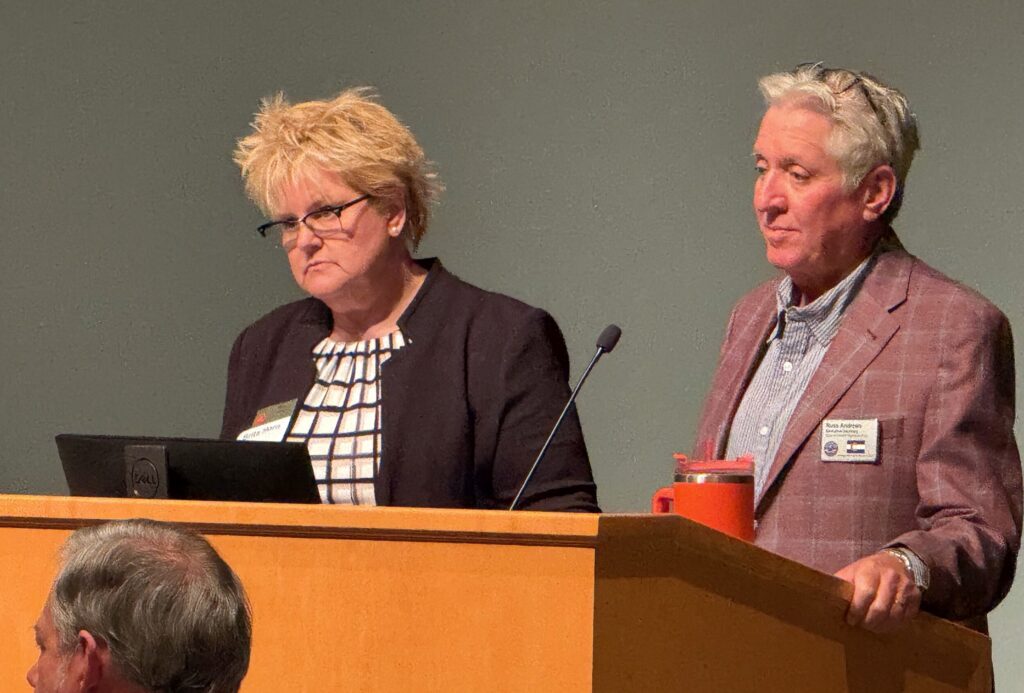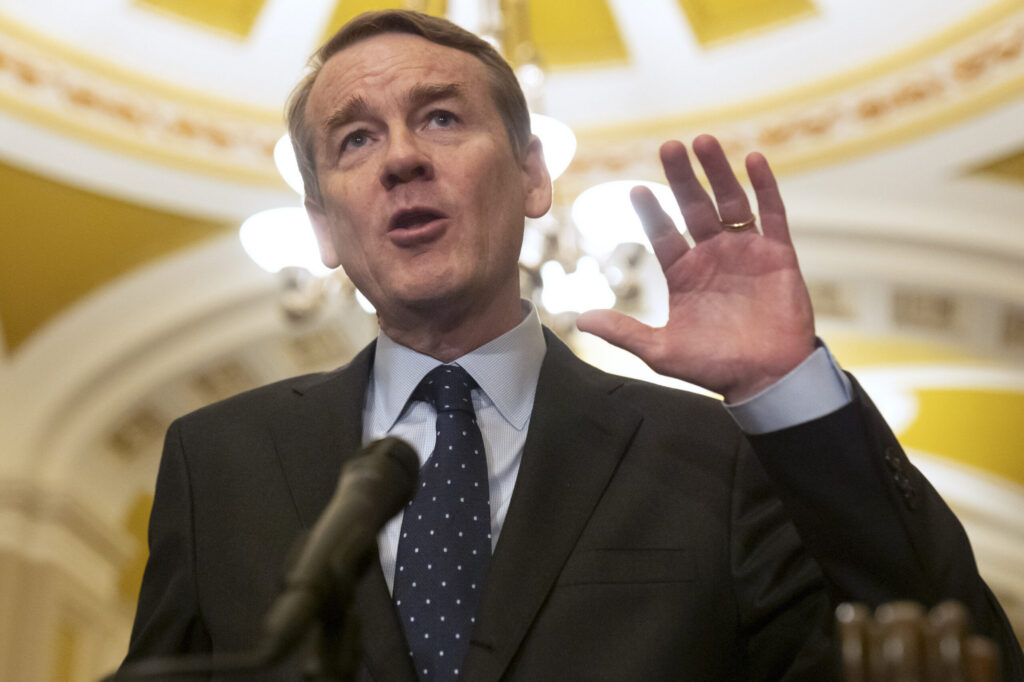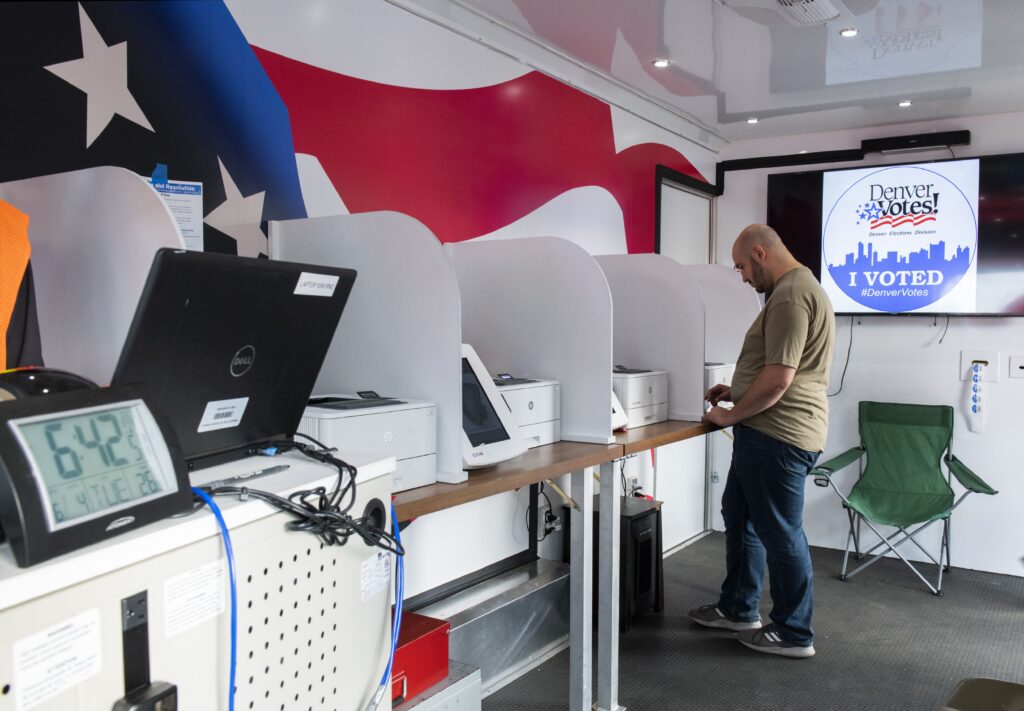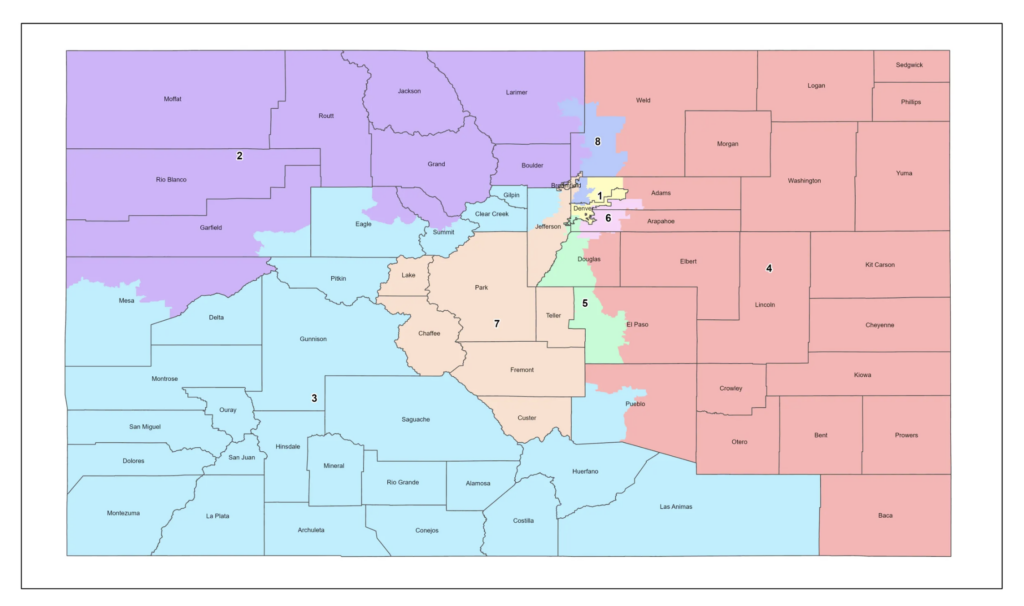Colorado lawmakers define ‘major purpose’ in campaign finance laws, clarify who must file reports

Yes – election bills in the Colorado General Assembly can sometimes be – although not often – bipartisan.
Case in point is Senate Bill 237, which changes campaign finance laws pertaining to issue committees, which deal with ballot measures. Its sponsors in the Senate are the Majority and Minority Leaders, and its House sponsors are also from each party.
The bill’s main purpose is to define “major purpose” in campaign finance statutes and the parameters under which it would apply, particularly when it comes to issue committees.
Senate Minority Leader Chris Holbert, R-Douglas County, told the Senate State, Veterans & Military Affairs Committee on Tuesday that the bill would address unanswered questions that have been tied to campaign finance complaints on ballot measures over the last couple of years. The ensuing court rulings, he said, have created confusion and made the environment for participating in issue committees difficult to navigate.
The bill seeks to clear up that confusion, Holbert said.
SB 237 would establish clear thresholds on spending, above which an organization would qualify as having a “major purpose” of supporting a ballot measure and which would trigger registration as an issue committee, as well as a requirement to file campaign finance reports.
Under the bill, the threshold for defining a “major purpose” is 30% of the organization’s total aggregate spending for all ballot measures or 20% for any individual ballot measure.
Senate President Steve Fenberg, D-Boulder, the bill’s co-sponsor, said lawsuits have resulted from a lack of clarify in state law. The bill doesn’t help one side or the other, he said, noting the complaints have come from and targeted both sides. Instead, it will just clarify for everyone what the rules are, he said.
Attorney Martha Tierney, who represents the Bell Policy Center, said courts have defined “major purpose” in a “less than consistent manner” on what amount of spending constitutes one.
She said interpretations of current law have led to a committee deciding what a major purpose is, determining on its own if it meets that requirement, and, if it decides it doesn’t, spending without any reporting.
SB 237 requires new disclosures for direct spending of $5,000 or more in a calendar year, either by issue committees or candidates. It also requires campaign finance reports to be filed with the Secretary of State’s elections division for expenditures that exceed $1,000 above the original threshold of $5,000.
The definitions in SB 237 came from examining spending by organizations that have historically engaged in spending in Colorado, Tierney said. Organizations that engage in direct spending on ballot measures also would be required to make those disclosures on their campaign materials, she said.
“We have no idea what ‘major purpose’ means,” said John Anderson of the Maven Law Group, who noted he has represented some of those who were targets of campaign finance complaints.
That confusion extends to lawyers, Anderson told the committee. SB 237 would define a legal standard that has been on the books for a decade, he added.
At least two dozen campaign finance complaints, tied to failure to register as an issue committee, have been filed with the Secretary of State’s office since 2019.
The most notable are two complaints against Unite for Colorado, which supported Propositions 116 and 117, and opposed Proposition 113, all during the 2020 election. The complainants, Scott Wasserman of the Bell Policy Center and Katherine Dorman, alleged in August 2020 that Unite Colorado spent $17 million in 2020, including $4 million tied to the three ballot measures, without filing as an issue committee or reporting its donations and expenditures. That represented a substantial portion of their activities, the complaint alleged.
The Deputy Secretary of State agreed that Unite Colorado’s spending satisfied the concept of a “major purpose,” fined Unite $40,000 and ordered the group to register as an issue committee and to file the campaign finance reports tied to those ballot measures.
According to a December 2021 filing by the Deputy Secretary of State, Unite Colorado failed to comply, which led to a request to the Attorney General’s office for judicial enforcement. In January, Unite filed a lawsuit in Denver District Court, seeking judicial review of the order and claiming that its donors will “suffer irreparable injury” once its contributions and expenditures are disclosed because “that information will lose its protected status and donors will lose anonymity.” That lawsuit is ongoing.
Senate Bill 237 won preliminary approval from the Senate Wednesday and heads to a final vote Thursday.














